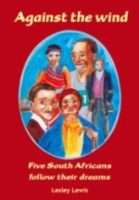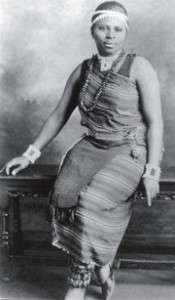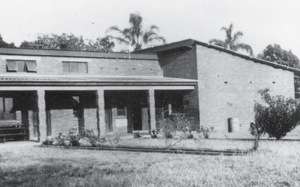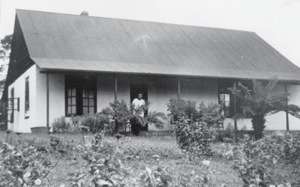Sibusisiwe Violet Makhanya was born in 1894 at Mbumbulu. She became the first black social worker in South Africa.
Her father first worked as a labourer on Durban docks. When she was born, he was a farmer growing vegetables and mealies for the market.
Sibusisiwe lived in a thatched hut, collected water from the river and enjoyed playing with her clay dolls. When she was nine, she went to Inanda Seminary. She was nearly asked to leave the school, because she was not quiet and wellbehaved.
Later she became a teacher at Inanda Seminary.
In the early 1920s, Sibusisiwe and Bertha Mkhize started an organisation called the Bantu Purity League. Bertha Mkhize said, “We talked to the girls and told them that a girl is just like an egg.
Once a girl gets ‘pahla’ she’s pahla’.” (When she’s broken, she’s broken.) After teaching at Inanda for eight years, Sibusisiwe left teaching to work full time for the Bantu Purity League.
She travelled through Natal, Zululand, and parts of the Transvaal to help young branch groups of the organisation. She gave talks on hygiene and better homes and gardens.
In 1927 she was given a scholarship to train as a social worker in America. After one year in America, it was time for her to return to South Africa. But she wasn’t ready to go home yet. She felt that she still had not learnt the things she needed to learn. She wanted to go to a college where people talked about the problems in rural areas.
So she went to another college for a year to study Social Work. She had to scrub floors to pay for her food. Then she began to give talks at churches.
She used the money she got from this to spend one more year studying, this time in New York. She learnt a lot while in New York, and had a lot of fun with the many good friends she made. But she didn’t forget her friends at home. The whole time she was in America she sent money to the ICU (the Industrial and Commercial Workers’ Union) which was a big trade union in South Africa at that time.
After three years in America, she returned to Mbumbulu in February 1930. At Mbumbulu there was a mixture of people. Some were Christians and some were not, but it didn’t worry anybody.
Sibusisiwe’s parents were Christian, but they still kept many of the old Zulu traditions. When she returned to Mbumbulu, she started the Bantu Youth League. Some of the things she tried to do were to try to get youth leaders to work together, and to get people of different races to come together and understand each other.
At Mbumbulu she also started a social centre and school. Her father and some herdboys helped her build a small wattle and mud schoolroom with a thatched roof. Her mother helped her plant a vegetable garden with extra vegetables for food for the herdboys when they came for their lessons. Sibusisiwe also used the garden to show people how to grow vegetables. They built another little house to be the meeting place for the Bantu Youth League. It was also used for a Sunday School and a meeting place for inter-racial groups.
So Sibusisiwe started a night school for herdboys, a winter school for girls and women and a Sunday school. She also organised a very big meeting every year for community leaders.
Sometimes people wrote about Sibusisiwe’s Community Centre in the newspapers. One person told how the herdboys came for their classes after herding cattle all day. The classes lasted for two hours every night during the week. “From 5pm onwards young herdboys may be found playing football on the field in front of her house, and at 8.30pm, when lessons are over, they line up in the lamplight to receive their supper on the back stoep of the Centre.” One of the teachers at the night school for herdboys told a newspaper, “They did their school work crowded round the only three old pressure lamps in the school. They were put to sleep in a set of huts, because it was too far for them to walk home, and there were no buses or other means of transport.
They returned to work the next morning at five o’clock.” Later, Sibusisiwe also organised adult education classes, and ran a small library and clinic at Mbumbulu.
When the Community Centre needed a schoolhouse, Sibusisiwe asked friends for gifts of cement. She set aside a certain day and called it Cement Sunday. On that day, gifts for the schoolhouse fund were collected.
In 1953, a woman called Lucy Johnston left the Community Centre a lot of money when she died – about 5000 pounds. This made it possible to build the classrooms and a large hall.
Sibusisiwe also started brewing and selling utshwala at Mbumbulu when she returned from America. Her bhuti, H.M.S. Makhanya, spoke about how she didn’t see anything wrong with beerbrewing. “When she came back, drinking was nothing, and she sold beer herself. She started a beerhall here, not far away from her place … churches overseas don’t ban alcoholic drinks.” Sibusisiwe decided not to marry. H.M.S. Makhanya said she didn’t get married because she was so outspoken, and this made the young men frightened of her.
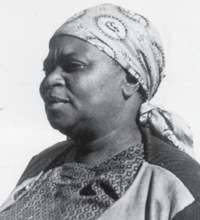 “I know why she didn’t got married,” he said. “You know amongst our people a woman has got to be very nice and humble. She wasn’t. She was so outspoken. She would come here and talk to men and women as she would to her friends, and the young men regarded her with fear. They would say, ‘I can’t live with such a woman — she’s a boss to me.’ “ Her friend Bertha Mkhize said she didn’t get married because “she was always busy. She was always thinking of what to do, and helping the people to lead a better life”.
“I know why she didn’t got married,” he said. “You know amongst our people a woman has got to be very nice and humble. She wasn’t. She was so outspoken. She would come here and talk to men and women as she would to her friends, and the young men regarded her with fear. They would say, ‘I can’t live with such a woman — she’s a boss to me.’ “ Her friend Bertha Mkhize said she didn’t get married because “she was always busy. She was always thinking of what to do, and helping the people to lead a better life”.
Sibusisiwe died in 1971. Before she died she said, “More cultural and social centres are required. Living apart often creates jealousy, suspicion and lethargy. By coming together the people would learn to work as teams to better their conditions.”
utshwala – traditional beer
bhuti – kinsman, in this case, her father’s cousin
stoep – verandah


